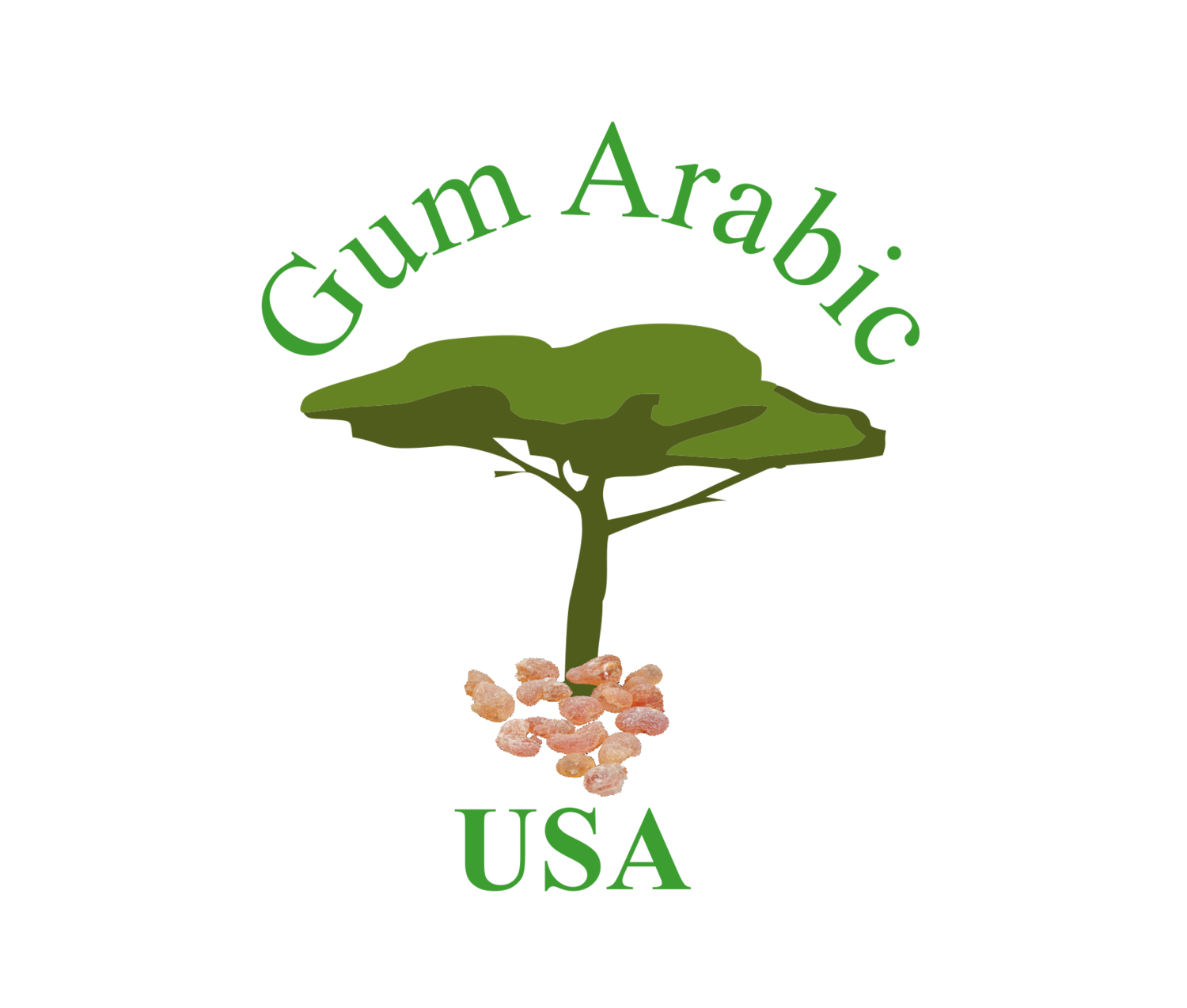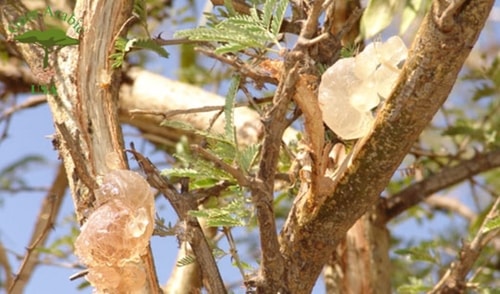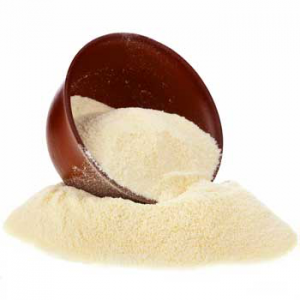What is Gum Arabic?
Gum Arabic is a natural plant-based gum obtained from the sap of Acacia Senegal and Acacia Seyal trees, primarily found in the African Sahel region, including Sudan, Senegal, and parts of Somalia, India, and Pakistan. Known for its exceptional stabilizing and emulsifying properties, Gum Arabic acts as a natural binder that seamlessly integrates ingredients that would otherwise separate. While it is most commonly used in the food industry, its remarkable solubility in water and neutral taste make it an essential ingredient in printing, pharmaceuticals, and cosmetics.
Scientifically recognized as one of the safest and most easily digestible natural fibers, Gum Arabic has been extensively tested for human consumption. In the food industry, it functions as a stabilizer, thickener, and emulsifier, enhancing the texture and quality of a wide range of products. It is commonly found in soft drinks, confectionery, jellies, dessert mixes, and soup bases, ensuring a smooth consistency while extending shelf life. In baking, Gum Arabic helps cakes rise naturally while increasing fiber content, making it an excellent ingredient for improving nutritional value. Additionally, in bakeries, it is often sprayed on pastries and bread to create a glossy finish while locking in moisture, ensuring freshness for a longer period.
Beyond its functional benefits, Gum Arabic is a nutritional powerhouse, rich in Acacia Fiber, Soluble Fiber, and Dietary Fiber, making it an exceptional Natural Prebiotic that promotes gut health. As an all-natural, non-GMO, and gluten-free ingredient, it is the perfect choice for food manufacturers and health-conscious consumers looking for a safe, effective, and nutrient-rich additive. Choose our premium-quality Gum Arabic to enhance the stability, texture, and nutritional profile of your products while supporting digestive health and clean-label formulations.
What is Xanthan Gum?
Xanthan gum is a common food additive derived from the fermentation of corn, soy, or wheat using the bacterium Xanthomonas campestris. While it is generally processed to be gluten-free, individuals with celiac disease or severe gluten sensitivity should verify the source, as cross-contamination can sometimes occur. If you follow a strict gluten-free diet, it is advisable to check product labels, contact the manufacturer, or visit their website to confirm whether the Xanthan gum is certified gluten-free before consuming it.
As a soluble fiber, Xanthan gum is considered safe for most people when consumed in moderate amounts and is recognized as Generally Recognized as Safe (GRAS) by the FDA. However, some individuals may experience digestive discomfort, such as bloating or a mild laxative effect, particularly if consumed in excessive amounts. Those with irritable bowel syndrome (IBS), Crohn’s disease, or other intestinal conditions should exercise caution, as Xanthan gum can exacerbate symptoms.
Pregnant and breastfeeding women can typically consume Xanthan gum in small amounts found in food products, but excessive intake is not recommended due to its potential digestive effects. While it is widely used in processed foods as a thickening and stabilizing agent, those with sensitivities or dietary restrictions should be mindful of its source and potential side effects
Gum Arabic vs. Xanthan Gum: Which is the Superior Choice?
Both Gum Arabic and Xanthan Gum are widely used in the baking industry, but despite their similarities as stabilizers and thickeners, they differ significantly in functionality, nutritional benefits, and overall versatility.
1. Natural Composition & Digestive Benefits
Gum Arabic is a 100% natural exudate harvested from the Acacia Senegal and Acacia Seyal trees, making it a clean-label ingredient.
It is rich in Acacia Fiber, a highly beneficial source of Soluble Fiber and Dietary Fiber, which functions as a Natural Prebiotic to support gut health.
Xanthan Gum, in contrast, is a fermented polysaccharide derived from bacterial fermentation of corn, wheat, or soy, which may cause digestive discomfort for some individuals.
2. Solubility & Texture in Baking
Gum Arabic dissolves effortlessly in both hot and cold water, creating a smooth, non-viscous solution ideal for stabilizing batters, icings, and glazes without altering texture.
Xanthan Gum forms a thick gel-like consistency, which is useful in gluten-free baking but can make dough excessively sticky or heavy.
3. Functionality & Applications
Gum Arabic is a superior emulsifier and stabilizer, widely used in baked goods, confections, and beverages to enhance texture and shelf life without affecting viscosity.
It is also used for coating cereals and confections, preventing sugar crystallization while maintaining product integrity.
Xanthan Gum is mainly used as a thickening agent, making it more suitable for sauces, dressings, and gluten-free dough rather than a universal stabilizer.
4. Digestibility & Health Impact
Gum Arabic is a well-tolerated, non-GMO, and non-allergenic fiber that promotes digestive health and supports beneficial gut bacteria.
Xanthan Gum, in high concentrations, can cause bloating and discomfort in sensitive individuals due to its fermentation-based origin.
Why Choose Gum Arabic Over Xanthan Gum?
If you’re looking for a natural, clean-label ingredient that not only stabilizes and enhances texture but also boosts fiber intake and promotes digestive health, Gum Arabic is the superior choice. Its Acacia Fiber content, Soluble Fiber benefits, and Natural Prebiotic properties make it a functional and nutritional powerhouse for the food industry.
Choose our premium Gum Arabic to elevate your baked goods, beverages, and confections with scientifically proven stability, health benefits, and unmatched versatility. Contact us today to secure your supply!





